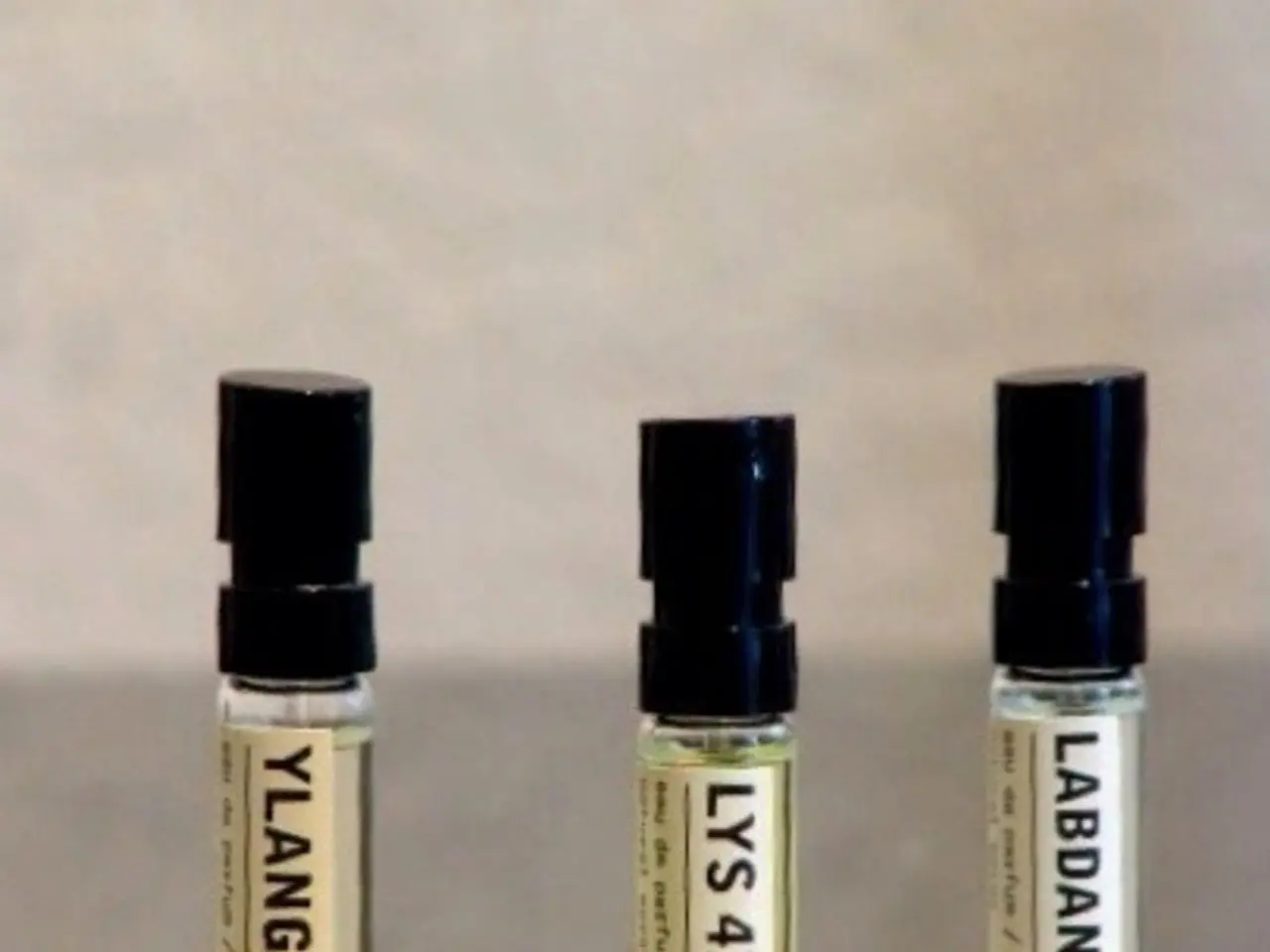Unraveling the Reasons Behind Perceived Aroma Appeal: Delving into Psychological, Biological, and Evolutionary Factors Influencing Scents' Attractiveness
In the intricate dance of human senses, the sense of smell stands out as a unique and powerful connector to our past, present, and future. Humans find some smells more pleasant than others due to a complex interplay of biological mechanisms, psychological processes, evolutionary adaptations, cultural conditioning, and personal experiences.
Biologically speaking, the olfactory system plays a pivotal role in this dance. Odor molecules enter our noses and are detected by olfactory receptors located in the olfactory epithelium in the nasal cavity. Humans have around 350 types of these receptors, each tuned to detect particular odor molecules, producing signals that the brain interprets as distinct smells [1][3]. The olfactory signals then make their way to the limbic system, the brain region involved in emotion and memory, tying smell perception closely to emotional responses and past experiences [1][2].
Psychologically, our brains associate smells with memories, emotions, and social cues. Strong connections between odor perception and memory/emotion regions mean that smells linked to positive experiences or social bonding are typically perceived as pleasant [1][2]. Conversely, odors associated with danger or spoilage are often found unpleasant, reflecting learned psychological responses conditioned by experience.
Evolution has shaped scent preferences to favor odors linked with safety, food sources, reproductive signals, and social communication. For example, the preference for certain plant or food aromas, such as rosemary’s invigorating scent with beneficial health associations, could be tied to adaptive advantages [4]. Similarly, subtle body odors that influence attraction and stress relaxation may play a role in social and reproductive behavior, hinting at evolved scent-based communication [5].
Cultural conditioning influences how individuals interpret and value smells based on cultural norms, traditions, and culinary practices. Different cultures may find the same odor pleasant or unpleasant due to learned associations, rituals, or symbols attached to scents, which override or modulate biological predispositions.
Personal experiences can greatly alter scent preferences by linking odors to individual memories, pleasant or traumatic events, or personal tastes. Since the olfactory pathway connects directly to emotional brain centers, personal odor history heavily impacts what smells a person finds pleasant or unpleasant.
In summary, pleasantness in smell arises from biological receptor specificity and brain processing, evolutionary survival benefits, culturally shaped perceptions, and individual memory-emotion associations, all blending to create unique scent preferences for each person [1][2][3][4][5].
Interestingly, unpleasant smells like spoiled food, garbage, or rotting flesh often evoke feelings of disgust, which may be linked to early survival mechanisms. On the other hand, scents such as fresh flowers, vanilla, or baking cookies often evoke pleasant memories of comfort, warmth, and security due to positive associations formed during childhood or repeated exposure to certain smells in environments that are perceived as safe or nurturing.
Understanding the complex interplay of factors influencing our sense of smell not only broadens our appreciation for the world around us but also opens doors to potential applications in fields such as fragrance design, health and wellness, and memory research.
- The intricate dance of human senses finds the sense of smell unique and powerful, connecting us to the past, present, and future.
- Our brains perceive some smells as more pleasant due to the complex interplay of biology, psychology, evolution, culture, and personal experiences.
- The olfactory system, situated in the nasal cavity, detects odor molecules through 350 distinct olfactory receptors.
- The brain interprets these signals as distinct smells, processing them through the limbic system, a brain region associated with emotion and memory.
- Psychologically, smells are linked to memories, emotions, and social cues, with odors linked to positive experiences being perceived as pleasant.
- Evolution has shaped scent preferences to promote roadmaps to safety, food sources, reproductive signals, and social communication.
- For instance, the liking for certain plant or food scents, such as rosemary's invigorating scent, might be rooted in adaptive benefits.
- The workplace-wellness industry acknowledges the role of scent in creating nurturing environments that promote productivity and fitness-and-exercise.
- Just as the preference for various plant or food scents may have evolutionary advantages, attractive body odors may play a crucial role in social and reproductive behavior.
- Cultural conditioning influences people's perception of smells, with different cultures finding the same scent pleasant or unpleasant based on cultural norms, traditions, and culinary practices.
- Strong connections between odor perception and memory/emotion regions imply that learned psychological responses imprint odors with positive or negative connotations.
- Chronic diseases, such as cance, respiratory-conditions, digestive-health issues, eye-health, and hearing disorders, might present specific body odors that influence personal health assessments or symptom recognition.
- In aging populations, therapies-and-treatments and skin-care regimens may be tailored to address skin-conditions and neurological-disorders, taking odors into account for better user compliance.
- Education-and-self-development encourages personal growth, promoting knowledge on the impact of scent on mental-health, mens-health, womens-health, and sexual-health.
- The role of nutrition in maintaining cardiovascular-health and managing weight-management is an essential aspect of health and wellness, with odors potentially influencing food choices and consumption.
- Fragrant essential oils like lavender or chamomile have medicinal benefits that support sleep-health, promoting better relaxation and stress management.
- In parenting contexts, the careful management of potential medical-conditions, such as skin-conditions, autoimmune-disorders, or mental-health challenges, can impact family dynamics, requiring a blend of science and empathy.
- The use of CBD for neurological-disorders and anxiety management is gaining popularity, with the sense of smell playing a role in its absorption and efficacy.
- Job-search platforms, as well as career-development and skills-training opportunities, recognize the importance of self-presentation, prompting an increased emphasis on professional grooming, skin-care, and personal hygiene.




